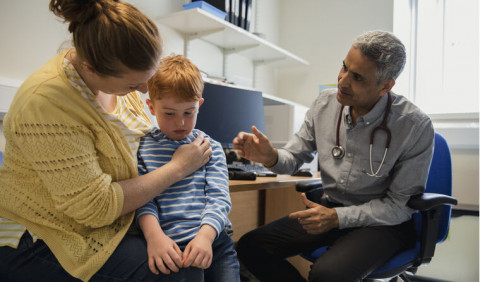
The newly developed group will deliver professional and peer support to GPs in the fields of autism, ADHD and neurodiversity.
GPs are often the first point of contact for individuals and families affected by ADHD and ASD.
The RACGP Board has approved a new Specific Interests group: RACGP Specific Interests Attention Deficit Hyperactivity Disorder (ADHD), Autism Spectrum Disorder (ASD) and Neurodiversity.
The group will support GPs through research, education and training to manage their patients to best practice standards, while exploring and disseminating information currently available in Australia and internationally about ADHD and ASD.
As with other groups, RACGP Specific Interests ADHD, ASD and Neurodiversity will represent the college in all matters relating to the conditions, advocate for, and liaise with consumer and professional organisations.
It will provide professional and peer support to GPs working in the field, recognising their central role in managing these patients and linking them with services such as the National Disability Insurance Scheme.
Experts have called for further upskilling of GPs in the diagnosis and management of ADHD and ASD, and clearer guidelines to ensure accurate diagnoses, with more complex cases being referred for shared care.
Associate Professor John Kramer, who has been appointed inaugural Chair of the group, told newsGP the aim is to address the lack of general practice education in the field, and upskilling.
‘GPs are the first point of contact for individuals and families affected by ADHD [and ASD],’ he said.
‘They are the gatekeepers of primary and secondary care. They need better training in the diagnosis and management of [these conditions].
‘Knowledge of referral pathways is crucial [and] coordination of care is vital in achieving improved outcomes.
‘The group will bring together GPs with professional and personal interests in all facets of neurodiversity.’
A rural GP in New South Wales, Associate Professor Kramer became involved in the area of ADHD and ASD due to a ‘lack of local services’.
‘I have come to realise that all GPs, both urban and rural, can significantly improve outcomes for ADHD by improved awareness and training,’ he said.
‘Earlier diagnosis and improved management of ADHD and ASD can have profoundly beneficial and life altering results for individuals and their families.’
ADHD is estimated to affect at least 3% of the Australian adult population – around 500,000 individuals – with an annual cost of around $20 billion.
Meanwhile, diagnosis of ASD is rising, with current rates estimated to be around one in 70 people. It is also recognised that around 50% of ASD individuals will have co-existing ADHD.
‘Education about ADHD is badly lacking in both undergraduate and postgraduate medical curricula in Australia,’ Associate Professor Kramer said.
‘Therefore, an initial priority [of the group] is to develop suitable education packages for GPs and other primary health workers, [with] work in this area already well advanced.’
As Chair, he says he is looking forward to providing a voice for college members and Fellows who ‘want to see much better recognition and management of a common lifelong condition’.
Associate Professor Kramer has represented the RACGP for the past two years on the working party to develop national guidelines for the management of ADHD in Australia, which is being undertaken by the Australian ADHD Professionals Association (AADPA) with Federal Government funding and is expected to be finalised in late 2022.
‘Within the [working] group there is general agreement that GPs, with suitable training and experience, should be allowed to prescribe stimulants for both children and adults,’ Associate Professor Kramer said. ‘Complex cases would still require referral.
‘I have found it a very rewarding activity [and] have worked hard to keep the GP perspective foremost.
‘[As Chair of the Specific Interests group], I’m looking forward to meeting and interacting with other GPs who share my clinical interests.’
RACGP members can join Specific Interests ADHD, ASD and Neurodiversity online.
from https://www1.racgp.org.au/newsgp/racgp/racgp-introduces-new-specific-interests-group